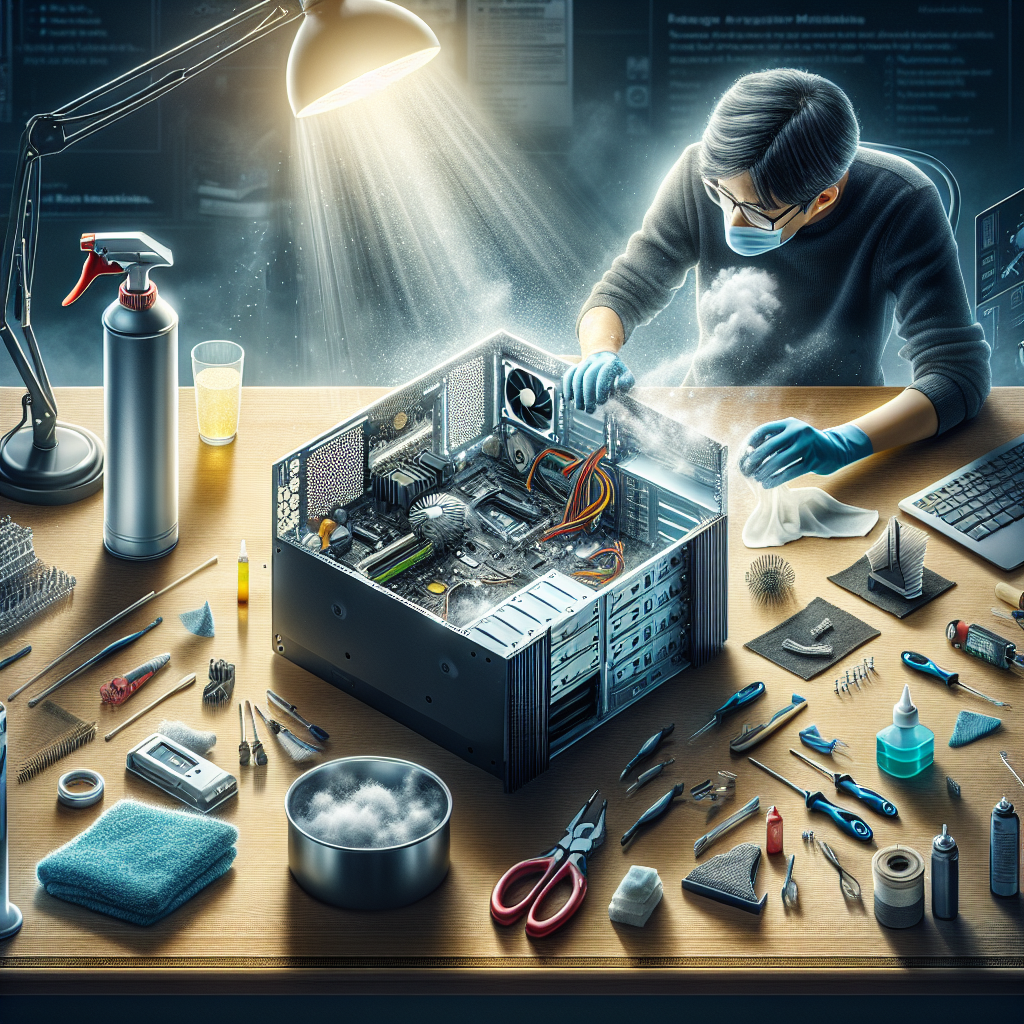In our ever-evolving digital landscape, computers have become essential tools for both personal and professional tasks. From managing finances to facilitating communication, a well-functioning computer is crucial for productivity. However, like any piece of technology, computers can suffer from wear and tear over time. Regular maintenance is the key to preventing costly repairs and ensuring that your system runs smoothly. This article delves deep into the importance of regular maintenance, highlighting practices that can help prolong the lifespan of your computer.
Understanding the Need for Maintenance
The Odd Couple: Hardware and Software
Two main components work in tandem to create a functional computer: hardware and software.
- Hardware refers to the physical components, including the CPU, RAM, hard drives, and cooling systems.
- Software encompasses the operating systems, applications, and various programs used for different tasks.
Issues can arise when either of these components malfunctions. Regular maintenance helps to prevent or address these issues before they escalate to full-blown repairs.
Reducing Downtime
Every minute your computer is down can equate to lost time, productivity, and potential revenue. Regular maintenance, through activities such as software updates and hardware checks, allows you to catch issues early on—before they lead to significant malfunctions. Preventive measures help to minimize downtime, ensuring you remain as productive and efficient as possible.
Cost-Effectiveness
Preventative maintenance is far less expensive than emergency repairs. Regular upkeep can save you from costly fees associated with repairs or replacements. For instance, a single hard drive crash may lead to significant data loss and the associated costs of recovery, whereas a routine check-up might have preemptively addressed issues that contributed to the failure.
Enhanced Performance
Computers face slowdowns over time as files accumulate, software becomes outdated, and hardware might wear out. Regular maintenance, including disk cleanups, system updates, and hardware inspections, can dramatically enhance your system’s performance. This leads to quicker boot times, faster processing speeds, and more seamless multitasking.
Best Practices for Regular Maintenance
1. Regular Software Updates
Software developers frequently release updates to improve performance, fix bugs, and address security vulnerabilities. Setting your system to update automatically can safeguard your data and maintain smooth operation.
2. Antivirus and Malware Protection
In today’s digital world, where threats abound, installing an effective antivirus software package is non-negotiable. Schedule regular scans and ensure that definitions are updated frequently. This proactive strategy can prevent malicious entities from compromising your system.
3. Disk Cleanup and Defragmentation
Over time, files accumulate and can cause your system to slow down. Regularly performing a disk cleanup removes unnecessary files, freeing up storage space. On Windows systems, defragmentation helps reorganize fragmented data, making it quicker to access.
4. Backup Your Data
Setting a routine backup schedule is essential for preventing data loss. Whether you use cloud storage or external hard drives, consistent backups will help you recover quickly in the event of a hardware failure.
5. Monitor Hardware Health
Regular assessments of hardware components can help preempt many issues. Use diagnostic tools to monitor the health of your hard drives, RAM, and cooling systems. If you notice any irregularities, address them immediately.
6. Clean Inside and Out
Physically cleaning your computer can prevent overheating and improve airflow, which are vital for maintaining hardware performance. Dust and debris can accumulate inside the case, hindering cooling fans and vital components. Taking the time to clean your computer internally and externally every few months can have significant benefits.
7. Regular Shutdowns
Many users tend to leave their computers on for extended periods, thinking it’s more convenient. However, regular shutdowns can help prevent overheating, as well as give the system a chance to refresh memory and processes, thereby enhancing performance.
8. Familiarize Yourself with Its Components
Understanding how your computer operates can help you identify and fix minor issues. Learn about different hardware components, so you’re aware of what may need replacement or repair over time. This knowledge can empower you to be proactive rather than reactive.
Summary
Regular maintenance of your computer is not just a suggestion but a necessity. Proper care can prolong the life of your system, enhance its performance, reduce repair costs, and ultimately keep you productive. While it may seem tedious, adopting a proactive approach to maintenance is an investment worth making for your digital well-being.
FAQs
Q: How often should I perform maintenance tasks on my computer?
A: It’s advisable to conduct minor maintenance tasks, like software updates and data backups, weekly. More rigorous tasks, such as comprehensive disk cleanups and internal cleaning, can be scheduled monthly or quarterly.
Q: Can I perform maintenance myself or should I hire a professional?
A: Many maintenance tasks can be done by individuals with basic computer knowledge. However, for hardware replacements or intricate issues, consulting a professional is recommended to avoid causing further damage.
Q: What should I do if my computer is running slow despite regular maintenance?
A: If your computer continues to run slow despite maintenance, it may be time to consider hardware upgrades or a more thorough diagnostics check to identify unknown issues.
Q: Is antivirus software really necessary?
A: Yes, antivirus software is crucial in protecting your system from malware and other digital threats. Not using it significantly increases the risk of data breaches and infections.
Q: How can I know if my computer needs professional repair?
A: Signs include frequent crashes, prolonged boot times, unusual noises, or error messages. If you encounter persistent issues despite regular maintenance, it may be time to seek professional help.
By making time for routine check-ups and upkeep, you’ll not only protect your investment but also experience a smoother and more efficient computing experience—one that helps you navigate the challenges of today’s tech-savvy world effortlessly.


